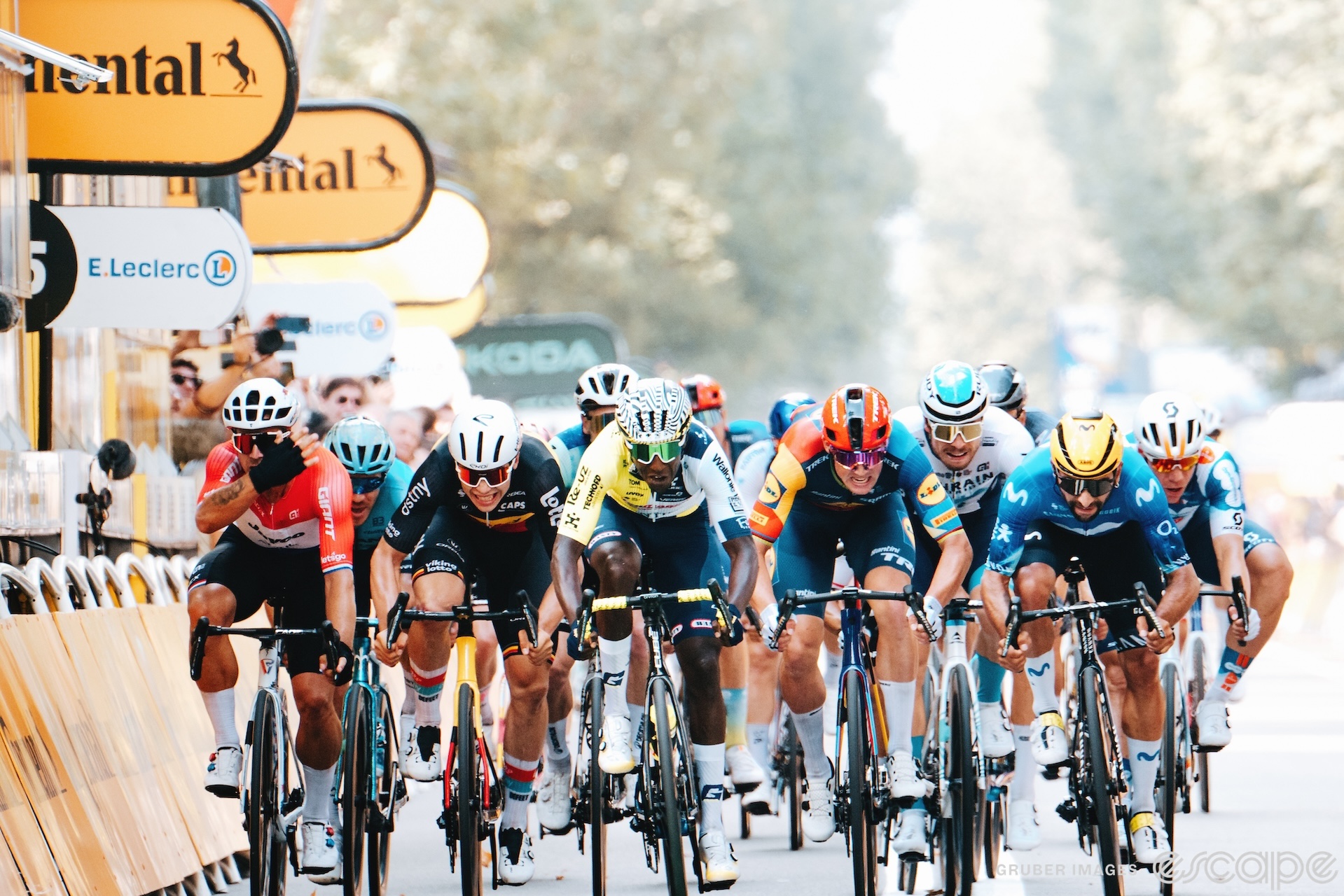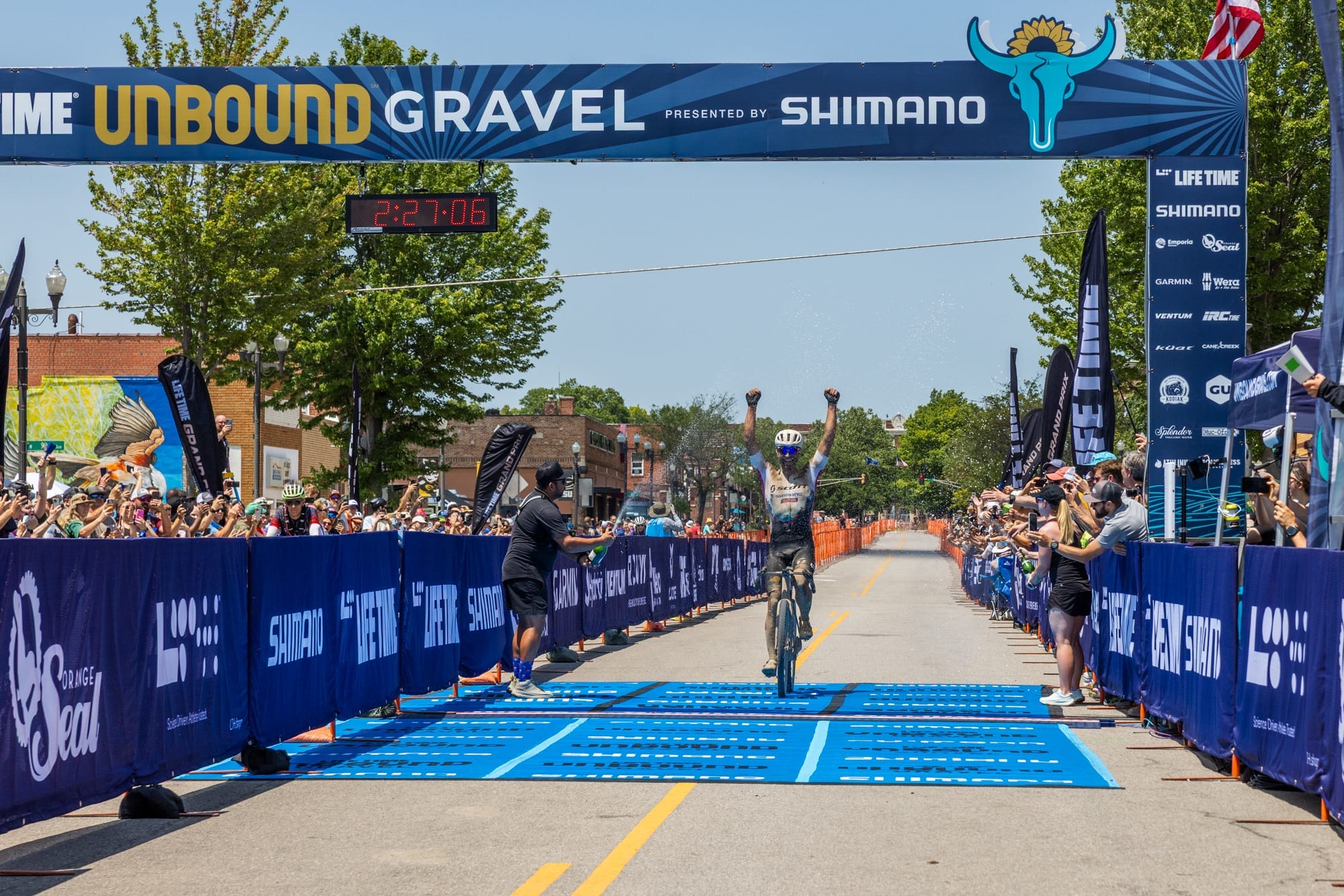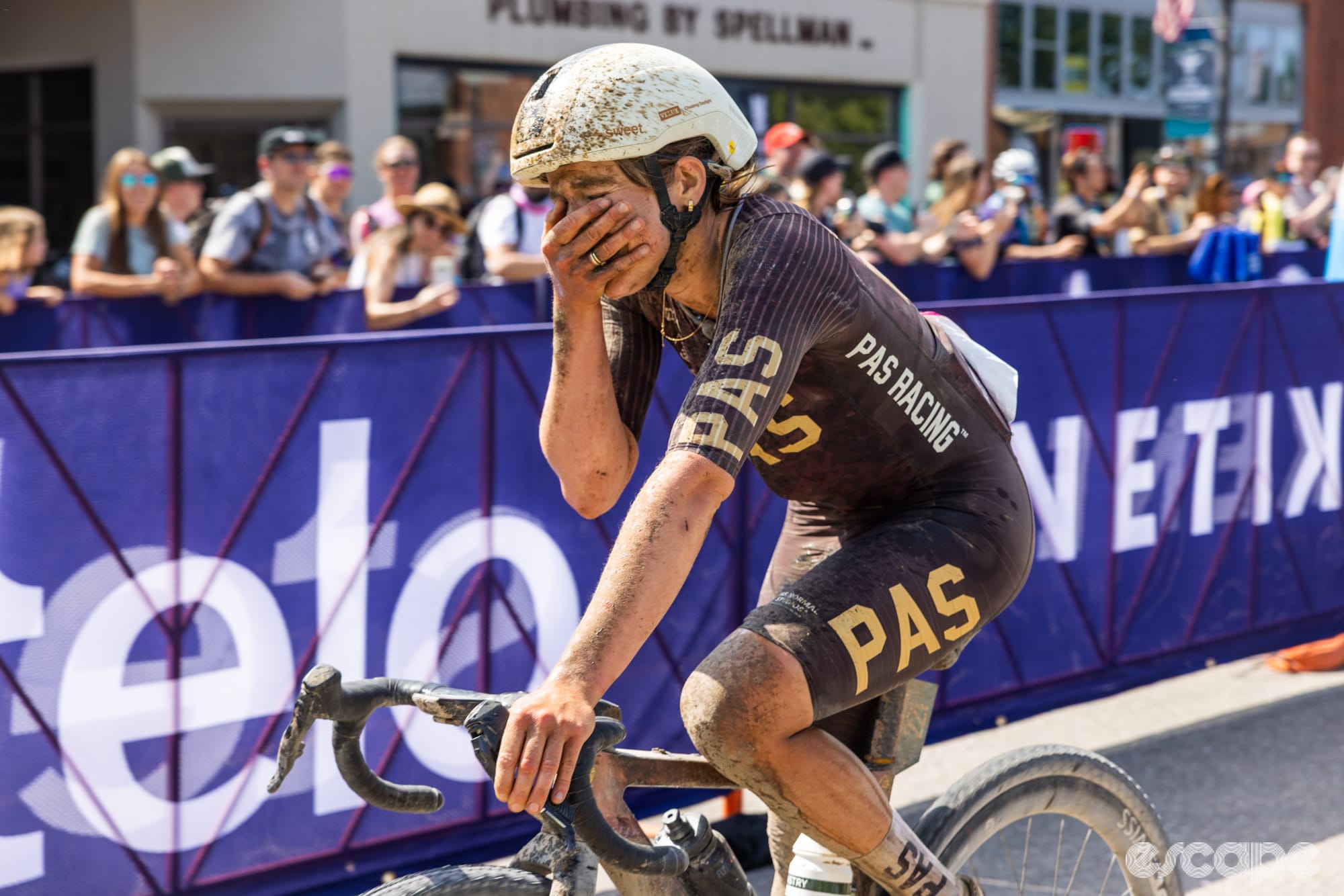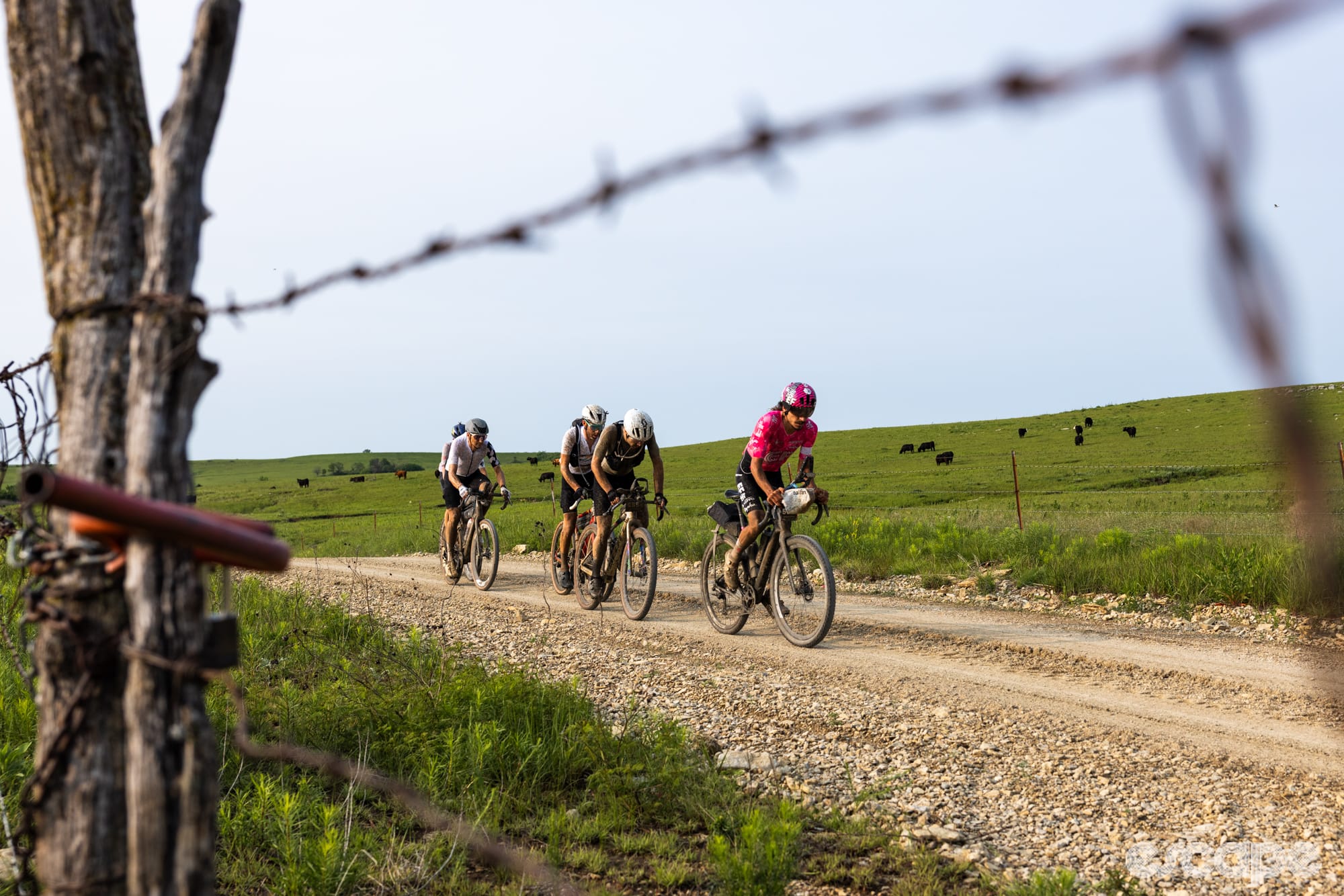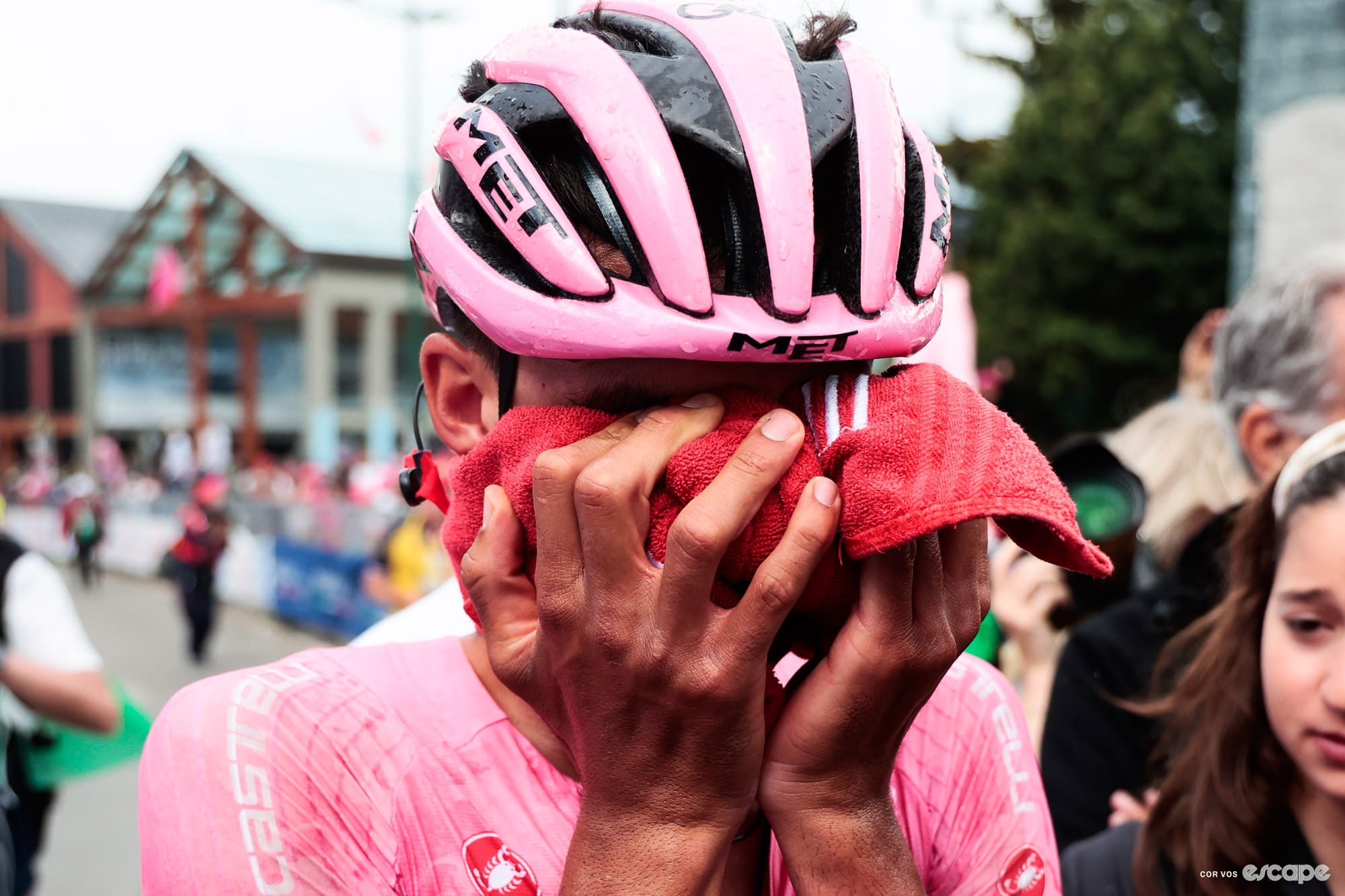A great lead-out can put a sprinter in pole position to take a victory – but getting dropped off too early can be worse than having no lead-out at all. That dynamic played out all within a single team on Monday at the Tour de France, where Biniam Girmay's Intermarché-Wanty team hit the front too early in the finale, dooming Gerben Thijssen's chances to contend, while Girmay himself surfed the wheels of the sprint stars and then powered to a historic victory.
"So in the end our team did a really good job, but in the last kilometer I lost Gerben’s wheel so I went for it myself," Girmay explained.
That worked out pretty well for the 24-year-old, who became the first Eritrean and first Black African rider to win a Tour stage.
With the early break caught and the sprinters' in control in the final kilometers of stage 3, everything was set up for a bunch sprint, but drama erupted on the roads of Turin as a crash brought down several riders with 2 km to go. In the immediate aftermath of the crash, and with two final corners looming, Intermarché surged to the front. Three of the Belgian squad's riders led the bunch into the last 1.6 km.
The third of those three riders was designated sprinter Gerben Thijssen, but Girmay, intended as the team's option for the slightly harder stages, was a few wheels further back.
Pre-stage favorite Jasper Philipsen (Alpecin-Deceuninck), meanwhile, was out of contention after crashing, while all-time great Mark Cavendish (Astana Qazaqstan) also said later that his own "chances were ruined by that crash" when he was caught behind the fall.
Intermarché led through the final two corners, but with 400 meters to go, the final lead-out man pulled off, leaving Thijssen out front far earlier than he wanted.
"In the last corner I was in second position already and I said, 'This is way too early, they are coming from behind with a lot more speed.' I had no answer," Thijssen later explained.
Instead of trying to hold an impossibly long sprint, he immediately looked for other wheels to follow, letting Decathlon-AG2R la Mondiale take control of the sprint.
Even that was still a bit too early, as Decathlon's Sam Bennett showed when he too decided to look for other wheels to follow when his own lead-out man pulled off the front. That put Lidl-Trek's Jasper Stuyven in control with his teammate Mads Pedersen and Lotto Dstny's Arnaud De Lie both fighting for his wheel.
At last, with 250 meters to go, Pedersen launched his sprint, drawing a reaction from the rest of the contenders. De Lie was in a solid position behind and to the side of Pedersen, but Girmay and Fernando Gaviria were ready to pounce. Enjoying a precious few moments in the slipstream, both riders then accelerated, with Girmay surging past along the barriers on Pedersen's right as Gaviria did so on his left.
Thijssen, meanwhile, was by this point about a dozen wheels back and too far behind to contend.
Watts decided the rest in the final moments of the stage. Girmay took the lead in the sprint with around 50 meters to go and held on to take the win ahead of Gaviria. Neither rider had relied on their teammates to guide them through the final kilometer, instead, either by design or by necessity, surfing the wheels. In they end, they both had the right idea, following the right wheels and then duking it out between themselves for the win, with Girmay proving fastest.
The tempo that his own team had set on the front certainly helped Girmay, in that he was in good position behind other sprinters by that point and any speed at the head of affairs would help keep him there, but had he actually been attached to his own team's train, whichever Intermarché rider was in the final position of the lead-out still might have found himself at the front too early to contend.
The absence of Philipsen and Cavendish in the final few hundred meters, of course, also helped Girmay take his win. Post-stage, Philipsen summed up the frustration of riding more than 230 kilometers just to have a crash derail him in the final.
"It was a very long and boring day," he said. "It’s a bit of a wasted day on the bike.”
On the bright side, Philipsen appeared to have come away from the crash unscathed. He and Cavendish will almost certainly be back in the mix soon. After Tuesday's stage 4 takes the peloton over the iconic Col du Galibier, stages 5 and 6 should both favor fast finishers again.
Whether Girmay has anything planned for his encore remains to be seen. His team does also have Thijssen, so it's hard to say where they will direct their efforts in the pure sprints to come. For his part, Girmay said that it was "massively motivating" for him "to win against the fastest in the world," and having proven his speed, he might get more chances moving forward.
In any case, Intermarché can be happy to have had two different cards to play in the stage 3 finale.
"We got a lot of hate for coming in with two sprinters, me and Biniam, but then in the end, you see that it plays out," Thijssen said. "We still have 18 days and we can still do a lot in the next two and a half weeks."
Did we do a good job with this story?

